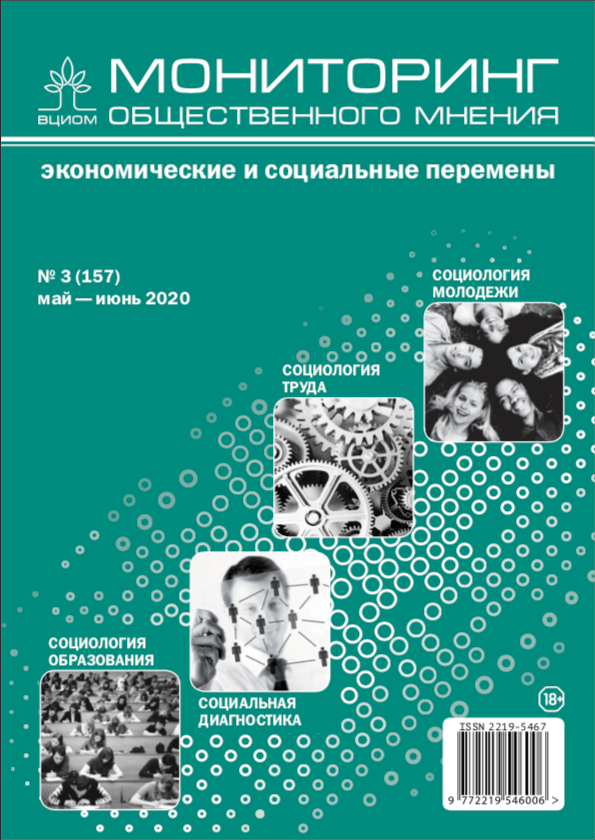Radicalization and Inequality in the Narratives of the Second Urban Generation of Muslim Youth from the North Caucasus
DOI:
https://doi.org/10.14515/monitoring.2020.3.1598Keywords:
radicalization, inequality, second urban generation, migration, milieuAbstract
One of the key problems in theoretical debate about the reasons behind radicalization is its relation to inequality. However, researchers tend to view this relationship both as objective inequality referring to structural restrictions for certain social groups to access economic, political and cultural resources and as subjective inequality, i.e. unequal distribution of resources within a community as perceived by community members.
The paper uses the results of 21 semi-structured in-depth interviews with young people living in the North Caucasus and investigates the meanings attributed to Muslim radicalization and its relation to different dimensions and interpretations of inequality. The authors conclude that according to the narratives the North Caucasus religious radicalization is connected to the perceived injustice and seen by the informants as a cumulative response to oppression of religious youth resulted from the counter-terrorism measures. Radicalization in the North Caucasus beyond the boundaries of the region is related to horizontal inequality and interpreted as a reaction to double exclusion (on the part of society where social elevators are closed because of ethnic and religious xenophobia and on the part of the family of origin striving to control its junior members and imposing the family’s own views on self-actualization and career).
Acknowledgments. This article is part of the international research project ‘Dialogs about Radicalisation and Equality (DARE)’. This project has received funding from the European Union's Horizon 2020 research and innovation programme under grant agreement no. 725349.
This publication reflects only the views of the authors; the European Commission and Research Executive Agency are not responsible for any information it contains
Downloads
Published
How to Cite
Issue
Section
License
Copyright (c) 2020 Monitoring of Public Opinion: Economic and Social Changes Journal (Public Opinion Monitoring) ISSN 2219-5467

This work is licensed under a Creative Commons Attribution-NonCommercial-ShareAlike 4.0 International License.






